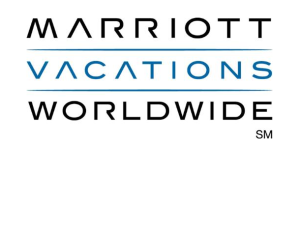Timeshare Sales: Today the Matrix is Margin says Nusbaum
Monday, July 30, 2012
How do you measure an industry’s success? For vacation ownership, industry leaders are looking at other factors beyond the dollars and cents of timeshare sales each year. A redefined product, options to buy timeshare in smaller increments (timeshare points), and increasing numbers of timeshare sales are all factors that play a part in the overall picture. As American Resort Development Association (ARDA) President and CEO Howard Nusbaum told Sara Clarke of the Orlando Sentinel, “In the old days, velocity was the rule of thumb … and today the matrix is margin.”
Last year, US timeshare sales totaled $6.5 billion, which is an increase of 2.4 percent from timeshare sales in 2010, a year that had only a slight increase over sales from the previous year. And while timeshare sales have yet to return to their 2007 peak of $10 billion, many in the industry are focusing on packaging, marketing, and selling timeshares in new and profitable ways.
Timeshare Sales Since the Economic Downturn Began
Unlike commodities such as the groceries you buy each week, the prices on timeshares are not going up. According to the Consumer Price Index, food prices increased 4.8 percent in 2011; are predicted to increase between 2.5 to 3.5 percent in 2012 (a number that is projected to be raised even higher now that so much of the US growing season has been impacted by drought); and to rise again in 2013 by 3.0 to 4.0 percent.
In contrast, timeshare prices are following very different patterns. While they may not be going down, most are not increasing and most importantly, many brands are repackaging their vacation ownership product in ways that make them more affordable. Hurt by the credit crunch that happened, now nearly four years ago, timeshare sales are benefiting from a range of adjustments the industry has made, including increasing the efficiency of sales operations.
The Orlando Sentinel article looked at some of the biggest names in vacation ownership (all headquartered in the Central Florida area).
- Wyndham Worldwide, owners of Wyndham timeshare, sold $1.6 billion in vacation ownership products in 2011, up from $1.5 billion the previous year.
- Marriott Vacation Club showed $634 million in timeshare sales for 2011, a drop of only $1 million from 2010. Although last year’s spin-off of Marriott timeshare and Ritz-Carlton timeshare from Marriott International, Inc. was not considered a challenge for the company, it makes sense that the company’s financials would not necessarily show growth for 2011 because it was such a transitional time for the company. Marriott timeshare Vice President Ed Kinney also pointed out in the Sentinel interview that Marriott’s, “average price has dropped since it switched from selling time shares by the week to selling a more flexible points-based product that can be redeemed for various types of vacations.” Again, this adjustment in business model represents a change from which a company could see a dip in numbers followed by a meaningful jump. Kinney explained, “When we dropped into the points program, it allowed a lower entry, at about $15,000.” The $15,000 price point is markedly lower than the product’s average price of $29,000 for a new, one-week timeshare interval.
- Hilton Grand Vacations, another Orlando-based timeshare company is privately held company, and as such does not disclose its sales, but described 2011 as the company’s ” most profitable year” in its 20-year history.
To read the full article go to: Time-share industry creeping back from credit crisis


